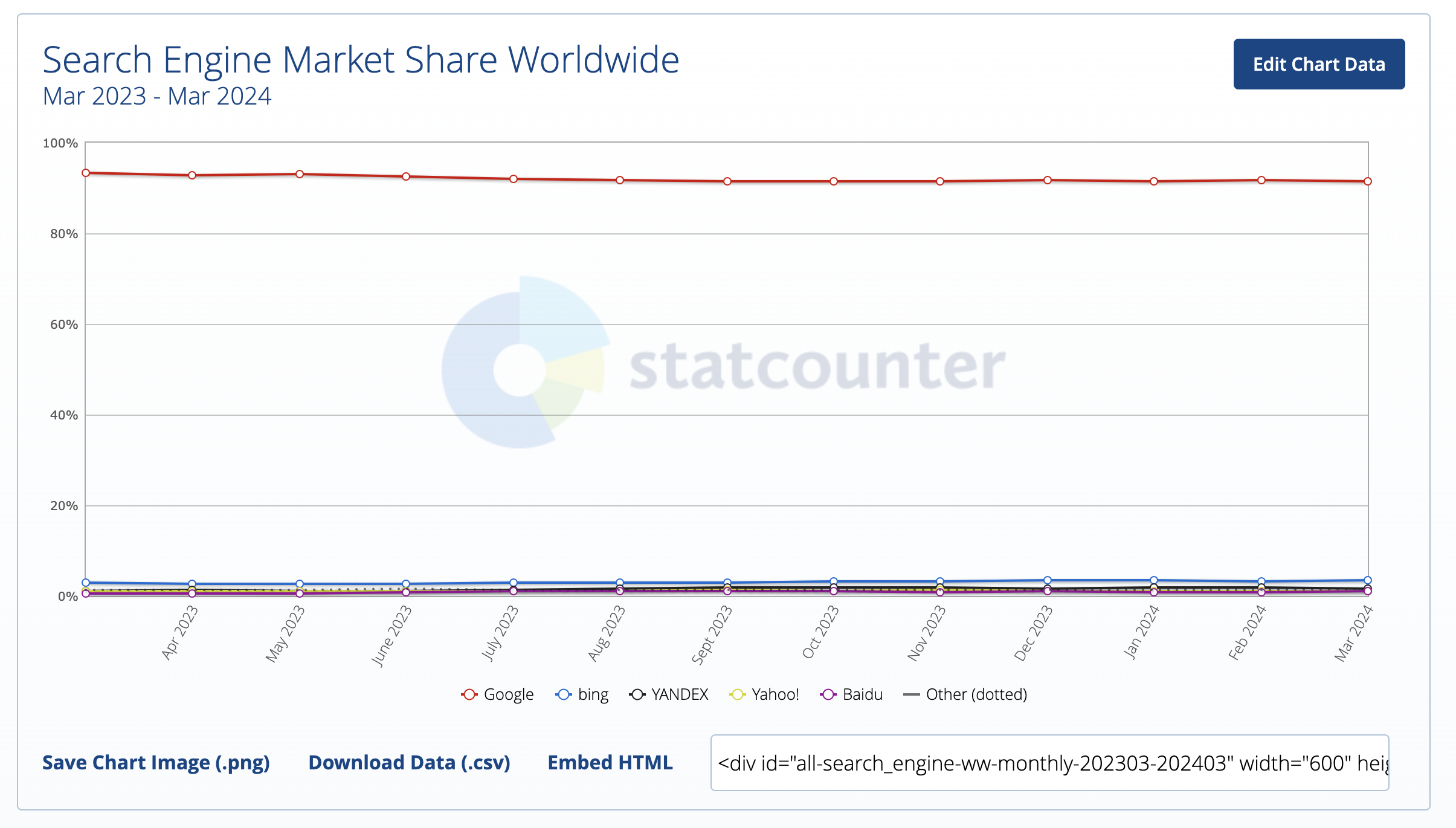Have you used Bing search lately? There’s now a better chance than ever that some small contingent of your coworkers, friends, and family are tapping into the Copilot AI-infused Bing to answer life’s most mundane and important questions.
As MSPowerUser notes, during a recent Microsoft earnings call company CEO Satya Nadella announced that Bing Search now has more than 140 million active daily users. If they all lived in the US that would be almost half the population typing in Bing.com into their web browsers to launch a search. It’s remarkable progress for the long-struggling search engine that got a fresh infusion of excitement when Microsoft integrated a custom version of ChatGPT into what was originally known as Bing AI over a year ago.
Since then, Microsoft rechristened it as AI Copilot and spread its artificial intelligence-enhanced search and generative AI response goodness across most of Microsoft’s core products including Windows 11, Edge, Teams, and Office.
The level of integration is so complete that it can be difficult to separate Bing from Copilot in any meaningful way. If you complete a Bing search, you’ll get a column of results below your query and a fast-typing, chatty Copilot on the right offering enhanced insight on your initial search. Compared to Google, which has yet to integrate Google’s new Gemini AI into the search experience, Bing search results can feel a little over-stuffed.
Information-wise, Google still does a better job of getting to the point than Bing but I can’t say that the results on the former are always superior.
When I searched for “I need the best pool cleaner for a kiddy pool” both search engines front-loaded commerce links for a wide variety of pool cleaners ranging in price from $59 to hundreds (or even thousands) of dollars. Bing followed with best of lists for pool vacuum reviews, but Google put useful instructions on how to use Clorox to clean my kiddie pool.
When I asked how to save my dying orchid, Bing listed a The Spruce article with its instructions at the top. On the left was some commiseration from Copilot and more natural language instructions. Google found the same article but below it listed step-by-step rescue instructions.
Again, deciding which is better may be a matter of taste. But that’s the problem, isn’t it? If Bing isn’t wildly better than Google, why would people switch? And, to be clear, most people have not switched.

This StatCounter Search Engine Global market share chart (above) best illustrates my point. The red line living in the stratosphere is Google. Now, look down until you see the blue line. That’s Bing. Yes, it’s ticking up compared to Yahoo and Baidu (and, yes, Google is trending ever-so-slightly down), but it’s still in the single digits when it comes to market share.
140 million is a lot of people, but if Google handles a reported 8.5 billion queries per day and the average person searches 3-to-4 times a day, that means Google has at least 2.1 billion daily active users. That’s a guestimate, obviously, but it also puts Bing’s progress in perspective.
Search the meaning of winning
The search engine is headed in the right direction but it has a long way to go before people start talking about “SEO” and “Bing” in the same sentence. What Google does to its search algorithm can change the fortunes of entire industries. Bing does not enjoy that kind of power, at least not yet.
Things could change and they could take a sharp turn if and when Google integrates Gemini into its core search. Some are already frustrated that you have to scroll through what are essentially ads before you get to your core Google search results. How will they feel when Gemini inserts its generative AI answers before that precious result? At least Bing has not put Copilot responses on top of its core results, at least not yet.
I’m happy to celebrate Bing’s milestone but no one should be confused about who is still king of Search Mountain and its name does not start with a B.





















+ There are no comments
Add yours